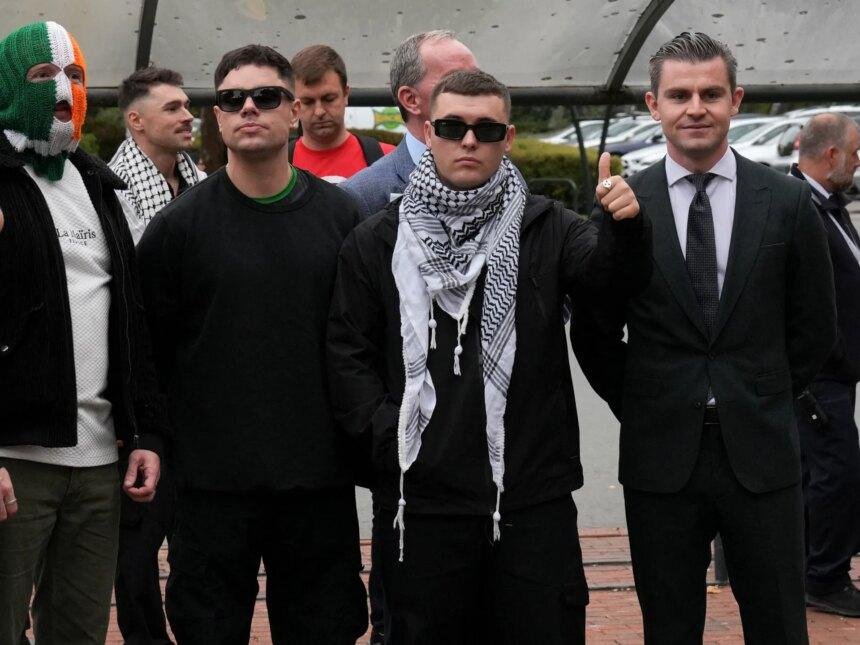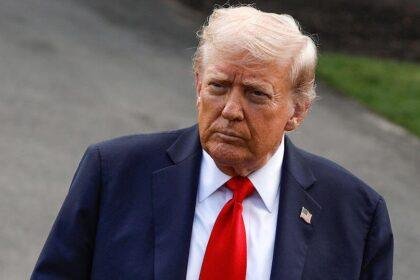UK Prosecutors Appeal Dismissal of Terrorism Charge Against Rapper Liam O’Hanna
In a significant legal development, prosecutors in the United Kingdom have announced their intention to appeal a court’s recent decision to dismiss a terrorism charge against Liam O’Hanna, a prominent member of the Irish rap group Kneecap. The case, which has drawn considerable public attention, centers around allegations that O’Hanna displayed a flag associated with Hezbollah during a concert in London last November.
Background of the Case
O’Hanna, also known by his stage name Og O hAnnaidh, faced charges under the United Kingdom Terrorism Act, which criminalizes the display of items that could reasonably be interpreted as support for banned organizations. The Crown Prosecution Service (CPS) initiated the case in May, but it was dismissed by Chief Magistrate Paul Goldspring on September 26 due to a technicality: the prosecution had exceeded the six-month statutory limit for bringing such charges.
The CPS has since expressed its determination to clarify what it describes as an important point of law. “We are appealing the decision to dismiss this case as we believe there is an important point of law which needs to be clarified,” a spokesperson stated, indicating that the legal implications of the case extend beyond O’Hanna himself.
The Broader Context
The dismissal of the charges has sparked a heated debate about freedom of expression, particularly in the context of the ongoing conflict in Gaza. Following the court’s ruling, O’Hanna asserted that the case was less about public safety and more about silencing dissent regarding the Gaza conflict. “As people from Ireland, we know oppression, colonialism, famine, and genocide. We have suffered and still suffer under ‘your empire’,” he remarked, emphasizing the historical struggles faced by the Irish people.
This sentiment resonates with many who view the prosecution as part of a broader trend of suppressing voices that criticize government policies or international actions, particularly those related to Israel and Palestine. Northern Ireland’s First Minister, Michelle O’Neill, echoed this sentiment, describing the charges as a “calculated attempt to silence those who stand up and speak out against the Israeli genocide in Gaza.”
Kneecap’s Position and International Reactions
Kneecap, known for its politically charged lyrics and advocacy for Palestinian rights, has faced scrutiny and backlash from various governments. Countries such as Hungary and Canada have banned the group from entry, while several concerts in Germany and Austria have been canceled due to concerns over the group’s political stance. Despite these challenges, Kneecap maintains that it does not support Hezbollah or Hamas and does not condone violence.
The group’s music often reflects the struggles of marginalized communities, drawing parallels between the historical oppression faced by the Irish and the current plight of Palestinians. This narrative has garnered a dedicated following, particularly among those who resonate with themes of resistance and social justice.
Legal Implications and Public Discourse
The appeal by the CPS raises important questions about the legal boundaries of free speech and the implications of the Terrorism Act. Critics argue that the law can be misused to stifle legitimate political expression, particularly in a climate where discussions about international conflicts are increasingly polarized. The case against O’Hanna could set a precedent for how similar cases are handled in the future, potentially impacting artists and activists who engage in political discourse.
The public’s reaction to the case has been mixed, with some viewing it as a necessary legal action to uphold national security, while others see it as an infringement on civil liberties. The debate highlights the delicate balance between maintaining public safety and protecting freedom of expression, a challenge that many democracies grapple with.
Conclusion
As the legal proceedings unfold, the case against Liam O’Hanna serves as a focal point for broader discussions about freedom of speech, the role of art in political discourse, and the implications of anti-terrorism laws. The CPS’s appeal not only seeks to clarify legal ambiguities but also underscores the ongoing tensions surrounding the Israeli-Palestinian conflict and the voices that dare to challenge the status quo. As O’Hanna and Kneecap continue to navigate these turbulent waters, their story remains emblematic of the struggles faced by artists who seek to use their platform for social change.











